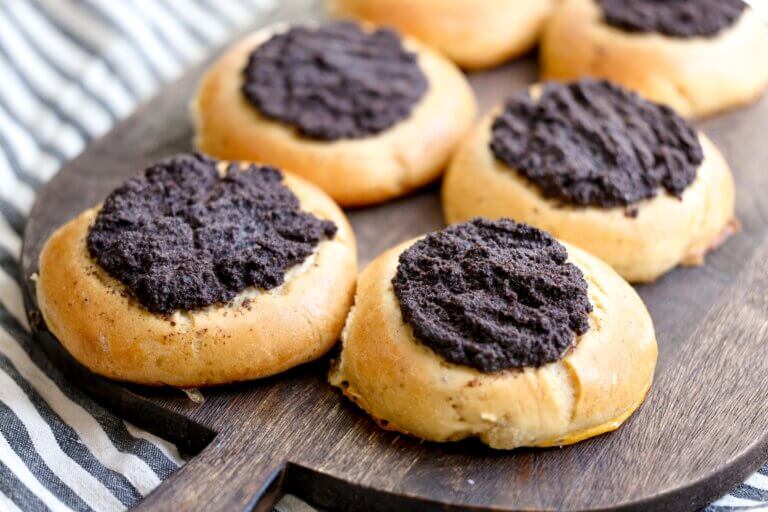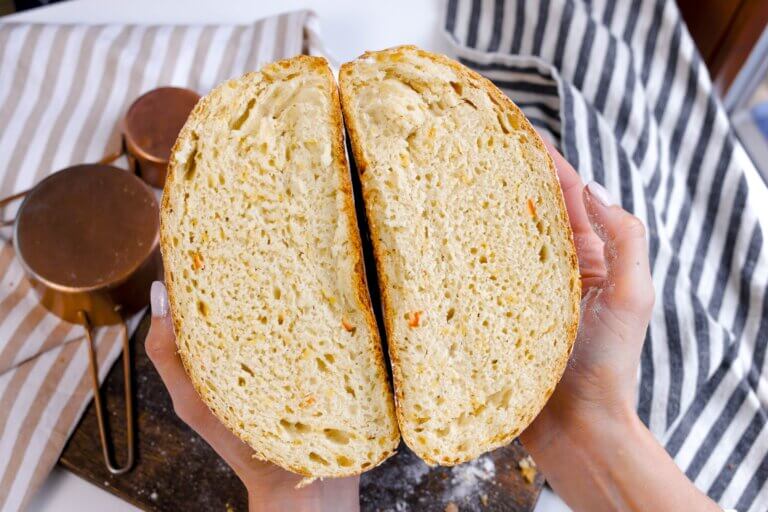Are Coffee Grounds Good for Strawberry Plants? Find Out Now!
Are Coffee Grounds good for strawberry plants? Learn if they’re good for your plants, how they affect soil, and the best way to use them in your strawberry patch.

Coffee is the most popular drink in the world, with over 2 billion cups consumed every day, or almost a trillion cups every year. While a good portion of that is instant, most of it runs through coffee makers. What’s left behind are those gritty, damp coffee grounds. You probably toss them in the trash or compost bin, but could they be useful in your lovely garden? Specifically, do strawberry plants like coffee grounds? That’s what this post will explore, and you’ll pick up a few extra tips along the way.
Yes, coffee grounds are good for strawberries. According to the University of Minnesota, coffee grounds are loaded with compounds that benefit healthy soil. They add carbon, nitrogen, and other beneficial compounds that support soil microbes. Coffee grounds can also help suppress some disease-causing organisms and make a great addition to compost. However, they don’t reliably lower soil pH, so they shouldn’t be used to acidify the soil for strawberries or other acid-loving plants.

How to Correctly Apply Coffee Grounds to Strawberry
Both Oregon State University and the University of Minnesota recommend using coffee grounds in small amounts. They say the best way to use them is by composting them first before adding them to your vegetable garden plants. That said, you can still apply coffee grounds directly to your strawberries, just go light.
Apply a thin layer at the base of the plant because thick layers can pack down and block air and water from reaching the roots. For most garden soil, the safest way to use coffee grounds is to mix them into your compost pile first, then work that compost into your strawberry bed.
Strawberries Like Acidic Soil
Strawberries like slightly acidic soil, according to three universities. NC State Extension says the ideal pH range for strawberries hovers between 6.0 and 6.2. The University of New Hampshire advises that the 5.8 to 6.2 range is best, and Minnesota Extension gives a slightly wider range of 5.3 to 6.5. If your soil’s more acidic than the ideal range, you can add lime to help bring it up to where strawberries grow best.
When soil pH is off, plants can’t absorb nutrients the way they should, and that can hurt your strawberry harvest. Experts say to test your soil first, so you know if you need to adjust anything before the growing season. Keeping the pH in that sweet spot gives your strawberries a better shot at strong roots, healthy growth, and fruit production.
Coffee Grounds and Soil Acidity: Do They Help Lower It?
Coffee grounds won’t reliably make your soil more acidic. Oregon State University says that after brewing, spent coffee grounds are nearly pH neutral. The pH sits around 6.5 to 6.8, so they don’t do much to change soil pH. The University of Minnesota Extension agrees that while coffee grounds help feed soil microbes, they haven’t been shown to consistently lower pH.
Some studies have found a slight drop in pH under certain conditions, but it isn’t something you can count on. If you need to acidify your soil for strawberries or other acid-loving plants, these universities recommend using elemental sulfur instead.
Coffee grounds are better used in compost or as a light soil amendment, not as a way to adjust acidity. So, if you’re grappling with high acidity level, use another method to fix it.

How Much Nitrogen Do Coffee Grounds Have?
Plenty of home gardeners swear by coffee grounds for their nitrogen content. Some clever folks on gardening subreddits even toss around wild ideas like using the “golden spray” (yes, urine). But how much nitrogen do coffee grounds actually offer?
The nitrogen content of coffee grounds typically ranges from 1.2% to 3.0% by dry weight. A 2022 study published in PMC found levels around 3.0%, which is higher than many common organic materials, such as eggshells.
A ScienceDirect article reports a similar range of 1.2% to 2.3%. And according to Cornell University’s SoilNOW blog, composted coffee grounds contain about 2% available nitrogen. That makes them a steady, moderate source of nitrogen for your garden, especially when added to compost.

Don’t Count on Coffee Grounds Alone to Feed Strawberries
According to the University of Minnesota Extension, strawberries need a good balance of nitrogen, phosphorus, potassium, and other nutrients to grow well and produce healthy fruit. Research published in PLOS ONE backs this up, showing that the right mix of N, P, and K not only supports strong plant growth but also helps maintain healthy soil microbes.
While coffee grounds add a little nitrogen and organic material, they don’t offer enough of the essential nutrients. The University of Florida’s IFAS Extension recommends using a complete fertilizer program as your main nutrient source, and that can include well-balanced organic fertilizers. Small wonder most gardeners apply fertilizer through the soil, through irrigation (fertigation), or even as a foliar spray.
So go ahead and use coffee grounds, but don’t count on them as a complete fertilizer. They’re a helpful supplement, not a full feeding plan. For the best results, it’s a good idea to get a soil test. The results will show exactly what your soil needs to support all the different plants in your garden.

Are Coffee Grounds Good for Baby Plants?
In my experience, coffee grounds are better suited for established or perennial plants, not baby plants. Fresh grounds can be a bit harsh for young plants. The caffeine and acidity they release can slow growth and interfere with root development.
Older plants with stronger root systems can handle them better, especially if the grounds have been composted first. I stick to using coffee grounds around mature veggies, herbs, or perennials. No grounds near new seedlings.

Benefits of Coffee Grounds for Strawberries
I’ve come across plenty of research showing that coffee grounds can improve soil quality, add nutrients, support soil microbes, and even help you garden more sustainably. Just be sure to use them the right way. Below are 7 solid coffee grounds benefits, some with strong research backing them, others still being figured out:
- Add organic matter and improve soil structure: Coffee grounds add valuable organic matter to the soil. Research from the University of Granada, shared on PMC, shows they improve soil structure by increasing porosity and reducing bulk density. This helps strawberry roots grow better.
- Provide nutrients strawberries need: Coffee grounds supply some essential nutrients for strawberries. The University of Minnesota Extension explains they provide nitrogen, phosphorus, and potassium. It works like a slow-release, natural fertilizer that enriches the soil and supports steady plant growth.
- Support soil microbial activity: They boost beneficial soil microbes for healthier soil life. Oregon State University Extension notes that this encourages nutrient cycling and strengthens overall soil health. Healthy soil microbes also help plants resist disease.
- Improve water retention and drainage: Grounds help soil hold moisture while still allowing good drainage. A study on PMC found that they improve water retention and soil aggregate stability. The International Journal of Formal Sciences reported similar benefits, especially in sandy soils.
- May suppress some plant diseases: This organic coffee machine waste has antifungal properties that may reduce harmful pathogens. Research from the Center for Neuroscience and Cell Biology of Coimbra found that coffee grounds disrupt fungal cell membranes, potentially lowering fungal diseases in the soil.
- Great for composting and sustainable gardening: Coffee grounds are a valuable addition to compost. The U.S. Environmental Protection Agency recommends using them as a nitrogen-rich “green” material that balances carbon-rich “browns.” This helps speed up decomposition while keeping more waste out of landfills.
- Natural pest control agent: Oregon State University Extension notes that caffeine in coffee grounds is toxic to slugs, so they stay away. Then there’s this research from the Norwegian Institute of Bioeconomy Research (NIBIO). The study found that using coffee pulp mulch in strawberry beds boosted populations of predatory mites and reduced harmful spider mites. It also encouraged a beneficial fungus that preys on spider mites.
Further, a 2022 study published in Plants showed that extracts from spent coffee grounds have insect-repelling and insect-killing effects, thanks to bioactive compounds like caffeine and phenolic acids

Downsides to Using Coffee Grounds on Strawberries
Too much of this organic waste, especially fresh grounds, can be a bad thing. They may slow plant growth, make the soil too acidic, tie up nitrogen during decomposition, and block water from soaking in properly. All of that can stress your plants and hurt your harvest. Composting first and using a light hand helps avoid these negative effects.
Here are some downsides to keep in mind:
Fresh Coffee Grounds Can Slow Early Growth
A 2023 study in the International Journal of Formal Sciences found that fresh coffee grounds slowed growth in new strawberry plants during the first couple of weeks post planting. That’s likely because of compounds like caffeine and tannins, which can be harsh on young plants and soil microbes. Composting the grounds first helps break those down and makes them safer to use in the garden.
Caffeine Can Stunt Plant Growth
According to New Scientist, caffeine that leaches out of coffee grounds can interfere with root development and disrupt nutrient absorption. If you pile on too much around sensitive plants like strawberries, the grounds can end up doing more harm than good.
Thick layers can block water from soaking in
If you spread coffee grounds too thick, they can form a crust that keeps water from seeping down into the soil. Even though strawberries have shallow roots, they likely won’t get enough moisture, which can lead to root stress. Experts recommend applying thin layers or composting first.
Too much coffee grounds in your garden can adversely affect how your strawberry plants take up calcium. And calcium is super important for healthy growth of the fruiting part of the plant. According to the University of Minnesota Extension, overloading soil with coffee grounds might lead to calcium deficiencies, which can cause issues like blossom end rot. When that happens, the fruit develops dark, sunken spots.
FAQ
This article may contain affiliate links, which means I make a small commission at no extra cost to you. As an Amazon Associate, I earn from qualifying purchases at no extra cost to you. You can read the full disclosure policy.









